How To Tell If A RWBY Character Is Sharing Their Body With Another Soul
How To Tell If A RWBY Character Is Sharing Their Body With Another Soul
Their reflection fails to reverse when the other soul is talking.
Remember Volume 4? Oscar notices something wrong with himself in the mirror just before Ozpin makes himself known.
Here's Oscar initially looking in the mirror, and not seeing anything wrong:

And here's the exact next shot, directly before Ozpin speaks:

Notice how the pockets on his arm and chest fail to switch sides, to be a reverse image like mirrors project, in the second image, but not the first.
Okay, maybe it was a goof in that second shot. It doesn't prove anything.
Here's some images from The Lost Fable with properly reversed reflections:


And now here's Ozma 2.0, just before and during his host asking him what they're doing:


Notice his lock of hair has failed to reverse in the reflection. It's swept towards his left-hand side in both.
Now, this is not foolproof. Not reversing a reflection is a very simple animation mistake to make, as we can see in Volume 7 Chapter 3:
Though, admittedly, Blake is metaphorically a person with two souls. Beauty and Beast in one person, symbolising the struggle between who she is and the person Adam wanted her to be. So maybe it's not a mistake? After all, she is the person who introduces us to the concept of people with two souls...

So, anyway, why do I bring this up?
Well, a lot of people have been discussing Cinder looking sad in her reflection in this week's episode:
Only, as a post by @witch-of-the-world has pointed out, her reflection has failed to reverse.

Now, this could easily be an animation mistake. Place a transparent model of Cinder behind the glass, fail to reverse-image it, easy mistake to make.
And, I mean, where would Cinder even get a second soul from? It's not like anyone was merging souls with the Fall Maiden powers just as Amber died-
Oh.
Both Salem's forces and even Lionheart have repeatedly said that that Ozpin's reincarnation this time around has been much faster than usual. The process usually takes longer.
So, to answer the question, why does Cinder look sad in her reflection?
And we're what? A year out from the Fall of Beacon, as opposed to Oscar's six months?
And there's just... little things that have left me and others suspicious. Her use of spears at the Attack on Haven, knowing that hurting Weiss would hurt Jaune, bringing up the Destiny line out of nowhere in Volume 6, the sheer amount of parallels between Ozma and Pyrrha (even using the same effect for their final deaths), the fact that Cinder's outfit looks kinda inspired by Pyrrha's...
So, to answer the question, why does Cinder look sad in her reflection?
I think there's a small chance that it wasn't Cinder in that reflection.


More Posts from Darthvoxpo and Others
Vader: *sigh* This whole plan was never going to work. ‘Torture his friends and he’ll come running’, of course not, Obi-Wan trained him for years, he knows to let go of his attachments like a *good little Jedi*, he’ll stick to the Code and understand fighting for the greater cause–”
Aide: “Lord Vader, ship approaching! X-wing class!”
Vader: “MY BOY.”
here’s a story about changelings
reposted from my old blog, which got deleted: Mary was a beautiful baby, sweet and affectionate, but by the time she’s three she’s turned difficult and strange, with fey moods and a stubborn mouth that screams and bites but never says mama. But her mother’s well-used to hard work with little thanks, and when the village gossips wag their tongues she just shrugs, and pulls her difficult child away from their precious, perfect blossoms, before the bites draw blood. Mary’s mother doesn’t drown her in a bucket of saltwater, and she doesn’t take up the silver knife the wife of the village priest leaves out for her one Sunday brunch. She gives her daughter yarn, instead, and instead of a rowan stake through her inhuman heart she gives her a child’s first loom, oak and ash. She lets her vicious, uncooperative fairy daughter entertain herself with games of her own devising, in as much peace and comfort as either of them can manage. Mary grows up strangely, as a strange child would, learning everything in all the wrong order, and biting a great deal more than she should. But she also learns to weave, and takes to it with a grand passion. Soon enough she knows more than her mother–which isn’t all that much–and is striking out into unknown territory, turning out odd new knots and weaves, patterns as complex as spiderwebs and spellrings. “Aren’t you clever,” her mother says, of her work, and leaves her to her wool and flax and whatnot. Mary’s not biting anymore, and she smiles more than she frowns, and that’s about as much, her mother figures, as anyone should hope for from their child. Mary still cries sometimes, when the other girls reject her for her strange graces, her odd slow way of talking, her restless reaching fluttering hands that have learned to spin but never to settle. The other girls call her freak, witchblood, hobgoblin. “I don’t remember girls being quite so stupid when I was that age,” her mother says, brushing Mary’s hair smooth and steady like they’ve both learned to enjoy, smooth as a skein of silk. “Time was, you knew not to insult anyone you might need to flatter later. ‘Specially when you don’t know if they’re going to grow wings or horns or whatnot. Serve ‘em all right if you ever figure out curses.” “I want to go back,” Mary says. “I want to go home, to where I came from, where there’s people like me. If I’m a fairy’s child I should be in fairyland, and no one would call me a freak.” “Aye, well, I’d miss you though,” her mother says. “And I expect there’s stupid folk everywhere, even in fairyland. Cruel folk, too. You just have to make the best of things where you are, being my child instead.” Mary learns to read well enough, in between the weaving, especially when her mother tracks down the traveling booktraders and comes home with slim, precious manuals on dyes and stains and mordants, on pigments and patterns, diagrams too arcane for her own eyes but which make her daughter’s eyes shine. “We need an herb garden,” her daughter says, hands busy, flipping from page to page, pulling on her hair, twisting in her skirt, itching for a project. “Yarrow, and madder, and woad and weld…” “Well, start digging,” her mother says. “Won’t do you a harm to get out of the house now’n then.” Mary doesn’t like dirt but she’s learned determination well enough from her mother. She digs and digs, and plants what she’s given, and the first year doesn’t turn out so well but the second’s better, and by the third a cauldron’s always simmering something over the fire, and Mary’s taking in orders from girls five years older or more, turning out vivid bolts and spools and skeins of red and gold and blue, restless fingers dancing like they’ve summoned down the rainbow. Her mother figures she probably has. “Just as well you never got the hang of curses,” she says, admiring her bright new skirts. “I like this sort of trick a lot better.” Mary smiles, rocking back and forth on her heels, fingers already fluttering to find the next project. She finally grows up tall and fair, if a bit stooped and squinty, and time and age seem to calm her unhappy mouth about as well as it does for human children. Word gets around she never lies or breaks a bargain, and if the first seems odd for a fairy’s child then the second one seems fit enough. The undyed stacks of taken orders grow taller, the dyed lots of filled orders grow brighter, the loom in the corner for Mary’s own creations grows stranger and more complex. Mary’s hands callus just like her mother’s, become as strong and tough and smooth as the oak and ash of her needles and frames, though they never fall still. “Do you ever wonder what your real daughter would be like?” the priest’s wife asks, once. Mary’s mother snorts. “She wouldn’t be worth a damn at weaving,” she says. “Lord knows I never was. No, I’ll keep what I’ve been given and thank the givers kindly. It was a fair enough trade for me. Good day, ma’am.” Mary brings her mother sweet chamomile tea, that night, and a warm shawl in all the colors of a garden, and a hairbrush. In the morning, the priest’s son comes round, with payment for his mother’s pretty new dress and a shy smile just for Mary. He thinks her hair is nice, and her hands are even nicer, vibrant in their strength and skill and endless motion. They all live happily ever after. * Here’s another story: Gregor grew fast, even for a boy, grew tall and big and healthy and began shoving his older siblings around early. He was blunt and strange and flew into rages over odd things, over the taste of his porridge or the scratch of his shirt, over the sound of rain hammering on the roof, over being touched when he didn’t expect it and sometimes even when he did. He never wore shoes if he could help it and he could tell you the number of nails in the floorboards without looking, and his favorite thing was to sit in the pantry and run his hands through the bags of dry barley and corn and oat. Considering as how he had fists like a young ox by the time he was five, his family left him to it. “He’s a changeling,” his father said to his wife, expecting an argument, but men are often the last to know anything about their children, and his wife only shrugged and nodded, like the matter was already settled, and that was that. They didn’t bind Gregor in iron and leave him in the woods for his own kind to take back. They didn’t dig him a grave and load him into it early. They worked out what made Gregor angry, in much the same way they figured out the personal constellations of emotion for each of their other sons, and when spring came, Gregor’s father taught him about sprouts, and when autumn came, Gregor’s father taught him about sheaves. Meanwhile his mother didn’t mind his quiet company around the house, the way he always knew where she’d left the kettle, or the mending, because she was forgetful and he never missed a detail. “Pity you’re not a girl, you’d never drop a stitch of knitting,” she tells Gregor, in the winter, watching him shell peas. His brothers wrestle and yell before the hearth fire, but her fairy child just works quietly, turning peas by their threes and fours into the bowl. “You know exactly how many you’ve got there, don’t you?” she says. “Six hundred and thirteen,” he says, in his quiet, precise way. His mother says “Very good,” and never says Pity you’re not human. He smiles just like one, if not for quite the same reasons. The next autumn he’s seven, a lucky number that pleases him immensely, and his father takes him along to the mill with the grain. “What you got there?” The miller asks them. “Sixty measures of Prince barley, thirty two measures of Hare’s Ear corn, and eighteen of Abernathy Blue Slate oats,” Gregor says. “Total weight is three hundred fifty pounds, or near enough. Our horse is named Madam. The wagon doesn’t have a name. I’m Gregor.” “My son,” his father says. “The changeling one.” “Bit sharper’n your others, ain’t he?” the miller says, and his father laughs. Gregor feels proud and excited and shy, and it dries up all his words, sticks them in his throat. The mill is overwhelming, but the miller is kind, and tells him the name of each and every part when he points at it, and the names of all the grain in all the bags waiting for him to get to them. “Didn’t know the fair folk were much for machinery,” the miller says. Gregor shrugs. “I like seeds,” he says, each word shelled out with careful concentration. “And names. And numbers.” “Aye, well. Suppose that’d do it. Want t’help me load up the grist?” They leave the grain with the miller, who tells Gregor’s father to bring him back ‘round when he comes to pick up the cornflour and cracked barley and rolled oats. Gregor falls asleep in the nameless wagon on the way back, and when he wakes up he goes right back to the pantry, where the rest of the seeds are left, and he runs his hands through the shifting, soothing textures and thinks about turning wheels, about windspeed and counterweights. When he’s twelve–another lucky number–he goes to live in the mill with the miller, and he never leaves, and he lives happily ever after. * Here’s another: James is a small boy who likes animals much more than people, which doesn’t bother his parents overmuch, as someone needs to watch the sheep and make the sheepdogs mind. James learns the whistles and calls along with the lambs and puppies, and by the time he’s six he’s out all day, tending to the flock. His dad gives him a knife and his mom gives him a knapsack, and the sheepdogs give him doggy kisses and the sheep don’t give him too much trouble, considering. “It’s not right for a boy to have so few complaints,” his mother says, once, when he’s about eight. “Probably ain’t right for his parents to have so few complaints about their boy, neither,” his dad says. That’s about the end of it. James’ parents aren’t very talkative, either. They live the routines of a farm, up at dawn and down by dusk, clucking softly to the chickens and calling harshly to the goats, and James grows up slow but happy. When James is eleven, he’s sent to school, because he’s going to be a man and a man should know his numbers. He gets in fights for the first time in his life, unused to peers with two legs and loud mouths and quick fists. He doesn’t like the feel of slate and chalk against his fingers, or the harsh bite of a wooden bench against his legs. He doesn’t like the rules: rules for math, rules for meals, rules for sitting down and speaking when you’re spoken to and wearing shoes all day and sitting under a low ceiling in a crowded room with no sheep or sheepdogs. Not even a puppy. But his teacher is a good woman, patient and experienced, and James isn’t the first miserable, rocking, kicking, crying lost lamb ever handed into her care. She herds the other boys away from him, when she can, and lets him sit in the corner by the door, and have a soft rag to hold his slate and chalk with, so they don’t gnaw so dryly at his fingers. James learns his numbers well enough, eventually, but he also learns with the abruptness of any lamb taking their first few steps–tottering straight into a gallop–to read. Familiar with the sort of things a strange boy needs to know, his teacher gives him myths and legends and fairytales, and steps back. James reads about Arthur and Morgana, about Hercules and Odysseus, about djinni and banshee and brownies and bargains and quests and how sometimes, something that looks human is left to try and stumble along in the humans’ world, step by uncertain step, as best they can. James never comes to enjoy writing. He learns to talk, instead, full tilt, a leaping joyous gambol, and after a time no one wants to hit him anymore. The other boys sit next to him, instead, with their mouths closed, and their hands quiet on their knees. “Let’s hear from James,” the men at the alehouse say, years later, when he’s become a man who still spends more time with sheep than anyone else, but who always comes back into town with something grand waiting for his friends on his tongue. “What’ve you got for us tonight, eh?” James finishes his pint, and stands up, and says, “Here’s a story about changelings.”
Hey do y'all fucks remember two years ago when just before the election all these “don’t vote both parties are bad” or “vote independent!” Posts were going around and then Trump won and now two weeks before midterms there’s all these “don’t bother voting, revolution is the only way!” And “your vote isn’t gonna matter and is an ineffective way to protest” posts are going around? Yeah knock that shit right the fuck off, don’t fall for it and get your ass to the polls, we are not doing this again.
See the notification ping into my email that there is another story. 
Feel temporary spark of delight for another of your excellent stories.
Remember the outline involves ozi and improvised exorcisms.
Feels flame of brutal soul quenching terror.
Just like zuko 
 in all seriousness always a delight to see another one of your fabulous stories.

Larva by MuffinLance
Read on AO3
Summary: That was a very, very big tree. A purple light pulsed at its bulging, split-barked core.
“Hello, mortal,” the tree said.
At which point Zuko scrabbled backwards until he splashed back into the stiller, warmer, deeper water of the turtleduck pond.
“Evil tree,” he told Azula.
“Dum-Dum,” she said, and stomped off.
A Chaos Avatar Zuko AU. Behold, the tumblr ficlet is officially posted.
Another tidbit of Mando lore;
Mandalorians quickly figured out that Jedi mostly view blaster fire as “fun lightsaber practice”.
During the Mando-Jedi wars, they dealt with this in characteristically practical fashion; they used slugthrowers (aka ordinary firearms) instead, because if a Jedi tries to deflect a regular bullet, what happens is “A bunch of bullet shrapnel to the Jedi’s face.”
4 comrades go to a Soviet hotel for a night during a business trip...
As they walk into their room, 3 of them, whip out some vodka, food and cigarettes and begin to make jokes about the government and be very loud indeed. The 4th one is trying to get some meaningful sleep and knowing that it would be fruitless to ask them to stop, hatches an ingenious plan. He goes downstairs to reception and asks for a cup of coffee to be delivered to the room.
“Make sure you deliver it exactly after 10 minutes starting from now”
Returning back to the room he joins his comrades midway a Stalin joke. He sits up shocked and exclaims:
“Comrades! You must not say these things! Don’t you know? They are listening to our conversations right now!”
The comrades jeer and laugh at him and say that that is impossible.
“Really? Then how do you explain this?”
He gets up and speaks into the lampshade by the beds.
“I would like a black coffee to be delivered to my room, please.”
And surely enough, in a short amount of time, a maid walks in with a cup of coffee and some sugar.
The other 3 comrades turn deathly pale and quickly turn in for the night. The last comrade drinks his coffee and peacefully goes to sleep.
Come morning the 4th comrade awakens only to find that his friends and all their belongings are missing.
Throughly confused and anxious, the man walks down the stairs to reception to enquire whether his friends had checked out earlier in the morning.
“I am afraid not sir. You see, the KGB raided your room during the night and placed your friends under arrest for ridiculing the Soviet regime.”
“B-but how come they didn’t take me?!”
“Oh, the Captain very much enjoyed your joke”
Before January ends, I’m going to magically and extremely be blessed by the universe.
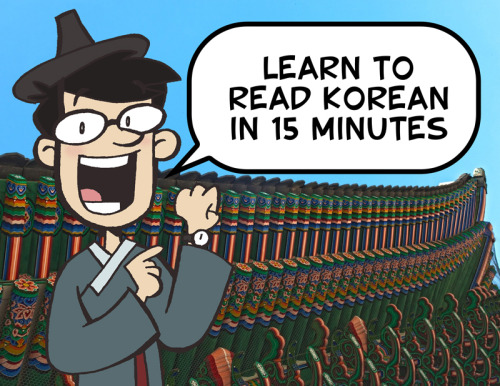
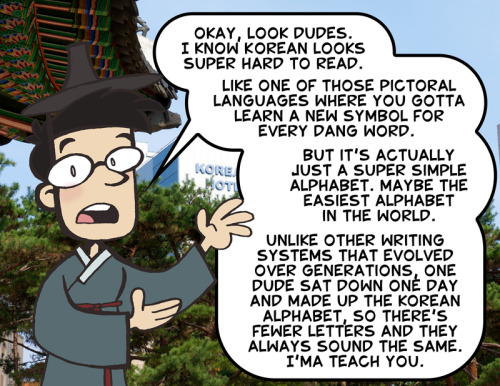
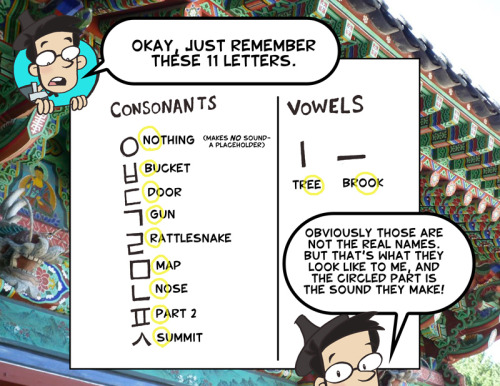
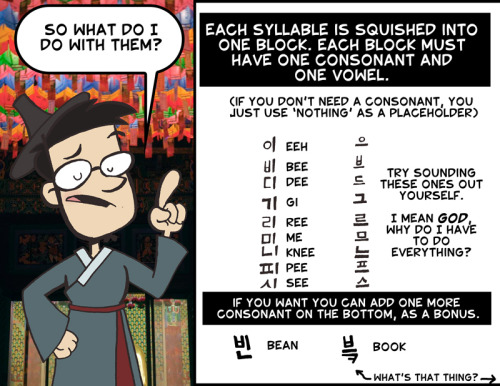
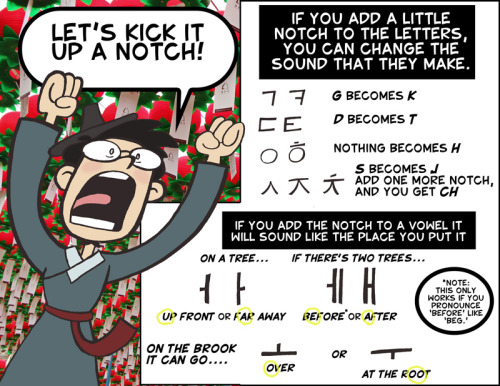
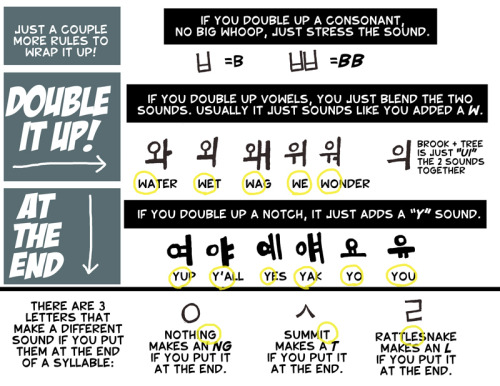
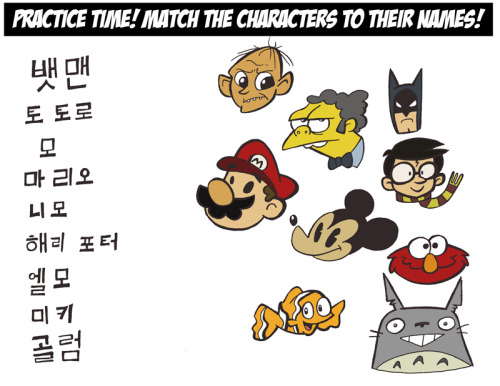
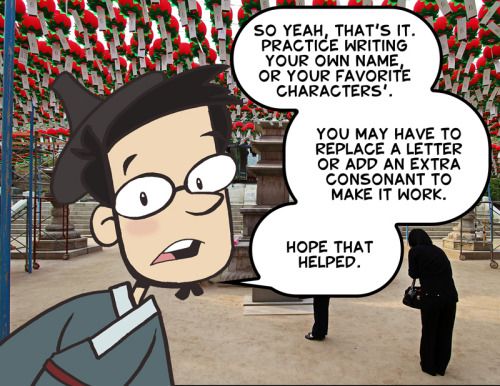
Just finished listening to Guards! Guards! again and the scene with the Watch asking for compensation really hit me this time around. Vetinari does his big speech about the absolute evil and darkness in humanity and then Fred Colon and Nobby Nobbs, who we know are not heroes, are not particularly nice people, are not, in short, “good” and they ask for barely any money and a new kettle and a dartboard and they worry that they’re asking for too much.
And Vimes just laughs and laughs at all the upper crust diplomats and Vetinari who can’t understand it. Can’t understand ten dollars a month raise. Can’t understand a kettle. Can’t understand a dart board.
I forgot how much I loved these books.
so the rule in my previous workplace of longest employment duration was (and probably still is)
no personal internet use while on the clock.
employee handbook said so. every so often bosses said so. that was The Rule. no personal internet use while on the clock.
except it wasn’t. it couldn’t have been the real rule.
because most people were faffing around on the internet in between bits of work. some were even doing it on the work computers, not on their personal tablets or phones.
the real rule couldn’t even have been don’t get caught using the internet for personal stuff on the clock. because zero people got in trouble over the Harry Potter Myers-Briggs quiz and related links that took up two hours of my section’s time one day. the section manager was playing as happily as anyone.
and there was not going to be any way to get anyone to explain the real rule. because the employee handbook said no personal internet use while on the clock, and that was The Rule.
anyway one of the reasons I left that job was I was sick of being autistic in that allistic hellscape.
-
 orikante liked this · 1 year ago
orikante liked this · 1 year ago -
 homestucktrauma liked this · 2 years ago
homestucktrauma liked this · 2 years ago -
 angstandhappiness liked this · 2 years ago
angstandhappiness liked this · 2 years ago -
 charlies-bog reblogged this · 3 years ago
charlies-bog reblogged this · 3 years ago -
 charlies-bog liked this · 3 years ago
charlies-bog liked this · 3 years ago -
 deliriousraven liked this · 3 years ago
deliriousraven liked this · 3 years ago -
 palladiumheart liked this · 3 years ago
palladiumheart liked this · 3 years ago -
 laylamorrison11 liked this · 3 years ago
laylamorrison11 liked this · 3 years ago -
 youreokayhaileydonelle reblogged this · 3 years ago
youreokayhaileydonelle reblogged this · 3 years ago -
 faedreamboy liked this · 3 years ago
faedreamboy liked this · 3 years ago -
 masteroffun85 reblogged this · 3 years ago
masteroffun85 reblogged this · 3 years ago -
 masteroffun85 liked this · 3 years ago
masteroffun85 liked this · 3 years ago -
 chaoticferalcritter liked this · 3 years ago
chaoticferalcritter liked this · 3 years ago -
 mindlessspark liked this · 3 years ago
mindlessspark liked this · 3 years ago -
 bunnybead123 liked this · 4 years ago
bunnybead123 liked this · 4 years ago -
 kaplooie liked this · 4 years ago
kaplooie liked this · 4 years ago -
 ciris17 liked this · 4 years ago
ciris17 liked this · 4 years ago -
 nexyra liked this · 4 years ago
nexyra liked this · 4 years ago -
 kitty8804 liked this · 4 years ago
kitty8804 liked this · 4 years ago -
 jordanallardisme reblogged this · 4 years ago
jordanallardisme reblogged this · 4 years ago -
 trinity-blaze liked this · 4 years ago
trinity-blaze liked this · 4 years ago -
 adiposeclot reblogged this · 4 years ago
adiposeclot reblogged this · 4 years ago -
 adiposeclot liked this · 4 years ago
adiposeclot liked this · 4 years ago -
 pspspsfreedonuts liked this · 4 years ago
pspspsfreedonuts liked this · 4 years ago -
 sapphicfandompirate liked this · 4 years ago
sapphicfandompirate liked this · 4 years ago -
 unadulteratedlawyerduckwinner liked this · 4 years ago
unadulteratedlawyerduckwinner liked this · 4 years ago -
 lusia11109 liked this · 4 years ago
lusia11109 liked this · 4 years ago -
 myblogmyhell liked this · 4 years ago
myblogmyhell liked this · 4 years ago -
 mels-trashblog liked this · 4 years ago
mels-trashblog liked this · 4 years ago -
 kit-fell-in-a-well liked this · 4 years ago
kit-fell-in-a-well liked this · 4 years ago -
 roosinii reblogged this · 4 years ago
roosinii reblogged this · 4 years ago -
 roosinii liked this · 4 years ago
roosinii liked this · 4 years ago -
 sundrenched-smilez reblogged this · 4 years ago
sundrenched-smilez reblogged this · 4 years ago -
 freakofnature13 reblogged this · 4 years ago
freakofnature13 reblogged this · 4 years ago -
 overrideeclipse liked this · 4 years ago
overrideeclipse liked this · 4 years ago -
 laikaspeaks liked this · 4 years ago
laikaspeaks liked this · 4 years ago -
 kitawolf12 liked this · 4 years ago
kitawolf12 liked this · 4 years ago -
 khrysoposmagadin reblogged this · 4 years ago
khrysoposmagadin reblogged this · 4 years ago -
 khrysoposmagadin liked this · 4 years ago
khrysoposmagadin liked this · 4 years ago -
 angryfacewritings liked this · 4 years ago
angryfacewritings liked this · 4 years ago -
 primalinfinity reblogged this · 4 years ago
primalinfinity reblogged this · 4 years ago -
 whore-msc liked this · 4 years ago
whore-msc liked this · 4 years ago -
 queertpie reblogged this · 4 years ago
queertpie reblogged this · 4 years ago -
 zelof reblogged this · 4 years ago
zelof reblogged this · 4 years ago -
 zelof liked this · 4 years ago
zelof liked this · 4 years ago -
 tiredgayspacepirate liked this · 4 years ago
tiredgayspacepirate liked this · 4 years ago -
 termyia reblogged this · 4 years ago
termyia reblogged this · 4 years ago -
 termyia liked this · 4 years ago
termyia liked this · 4 years ago -
 heraldofspring liked this · 4 years ago
heraldofspring liked this · 4 years ago

92 posts